

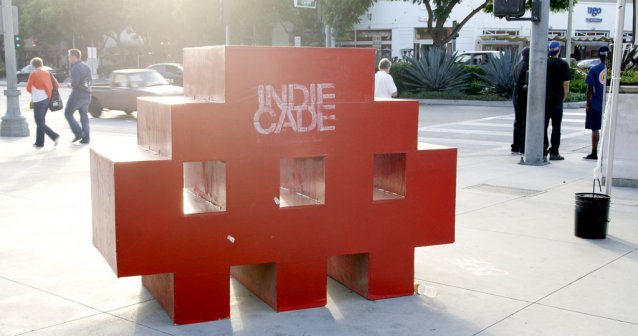
"That's David Kanaga," my colleague murmurs in my ear, as we're approaching the Ivy Substation where soon anna anthropy will be delivering her talk on the emergence of queer games. "He did the music for Dyad."
IndieCade is a yearly independent games festival held in Culver City, a curious semi-suburban district in Los Angeles that is half industrial, half upscale. Baking under the persistent heat of California's October sun and set a mere block away from the Museum of Jurassic Technology, a gallery dedicated to outlandish false history, if anything IndieCade reminds me more of university than your regular games convention. Academics, designers and journalists go from lecture hall to lecture hall in sneakers and denim shorts, shielding their eyes against the afternoon sunlight as a man with an Austrian accent explains how Jane "Reality is Broken" McGonigal pilfered his ideas. It's fitting that another of IndieCade's conference tracks is Game U, a sort of indie game development crash course chaired by the former director of Slamdance, to which IndieCade might be said to be an inheritor.
But back to David Kanaga. He's seated on a cement bench encircling a dusty spray of bushes in a small courtyard outside the Ivy Substation, which is a nontraditional proscenium-styled theater a couple blocks from the converted parking lot dubbed the "IndieCade Village," where we got our badges. Kanaga, shielding his eyes from the late morning sun as he chats with another designer, is just out of range of our hearing for the moment. "He's one of the nicest people I've ever met," my colleague continues.
 Kanaga is indeed very nice when my colleague walks up to introduce me. He greets me with a bright smile and a handshake. I had only started playing Dyad the night before, and at that moment I try to mentally pair this man's sunny expression with the electronic euphoria/nightmare cacophany that is Dyad's feedback-sensitive soundtrack. Dyad can be a really mean game, in that love/hate-the-player kind of way. Which makes sense since Dyad's lead designer, Shawn McGrath, actually hates games.
Kanaga is indeed very nice when my colleague walks up to introduce me. He greets me with a bright smile and a handshake. I had only started playing Dyad the night before, and at that moment I try to mentally pair this man's sunny expression with the electronic euphoria/nightmare cacophany that is Dyad's feedback-sensitive soundtrack. Dyad can be a really mean game, in that love/hate-the-player kind of way. Which makes sense since Dyad's lead designer, Shawn McGrath, actually hates games.
(No, really. This is directly addressed at one point, albeit not in a formal interview setting-- but then, few conversations with devs at IndieCade are. Rather, it comes up late at night while everyone is tired, sore and a little drunk. "Is it true you hate videogames?" someone asks McGrath, talking loudly over low fence separating the Culver Hotel's dining area from the pedestrian walkway. "Yes," McGrath admits, holding a beer and looking sheepish under the tungsten dining lamps. But, he says, it's more that he believes in the potential of games, he's just disappointed in the general output. He's far from alone in that, indicated by the strong attendance at this festival year after year.)
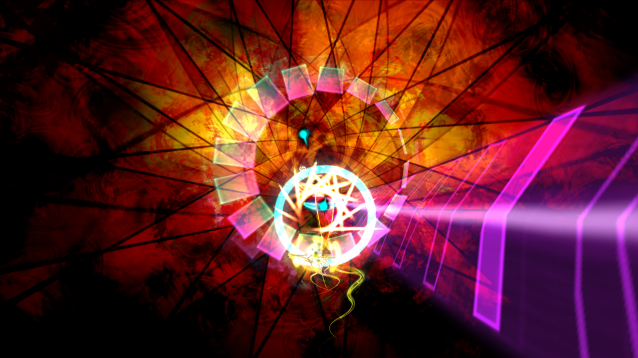
Dyad (][ Inc, 2012, PS3)
But it still strikes me how odd it is to define someone by their niceness, particularly at a conference devoted to outsider games, where surely it must pay to be confrontational. Independent game developers are the barbarians at the gates, yes? The ones screaming to get in. Where does niceness figure into that?
Frequently, of course. Even Shawn McGrath, inadvertently controversial as he is, remains a charming fellow to chat with. There is this stereotype that to be a participant in an event like IndieCade, which, after all, is all about games outside the mainstream, means you're an agitator or a threat. It means that you're trying to tear down all the manshooters and open world revenge-sims and replace them with naval-gazing meditations on the working poor and gasoline-powered 1-bit consoles. The truth is that many, if not most, independent developers are actually terribly generous, easy-going people who play the same mainstream games that you and I do... they're just like McGrath, dissatisfied with the existing status quo, and having found AAA development reluctant to change, have elected to make their own contributions.
To be certain, not all independent developers have a glowing reputation. Some have even cultivated a (rather enviable, really) love-to-hate-them reputation: Phil "Japanese games suck" Fish, designer of FEZ; Jonathan "who can't afford a $100 Steam Greenlight fee?" Blow, designer of Braid; et cetera. And some developers --friendly, infamously abrasive or otherwise-- absolutely see themselves as agitators. "The point [...] is not to ask for a seat at the table, but to flip the table," anna anthropy says during her Friday afternoon talk. To be a non-normative subject --that is, to be non-white, or non-straight, or non-male, or non-Judeo-Christian, or poor, or trans, or disabled, or a combination of those-- is to be inherently political. Which means that simply by existing, you challenge the sort of political reality which permits two straight, white cismen to sit at a table discussing how their views as Christians inform their policy-making on women's reproductive rights-- to give one particularly salient recent example.
So you can see why indie games seem to attract more confrontational subject matter than their AAA counterparts. And also why, when Analogue: A Hate Story developer Christine Love said during Friday's Well-Played session "Actually, I did intend to make a feminist game," the audience applauded. This isn't the sort of thing that should merit applause --feminism, as IndieCade festival chair Celia Pearce pointed out during Sunday's inclusivity panel, continues to be intrinsically about equal rights for men and women, much as it has been maligned by the political right and so-called Men's Rights Activists-- but it is the fact that it did, that Love's statement was met with such relief and warm regard, which sums up rather succinctly where the games of IndieCade and the mainstream games industry often part company.
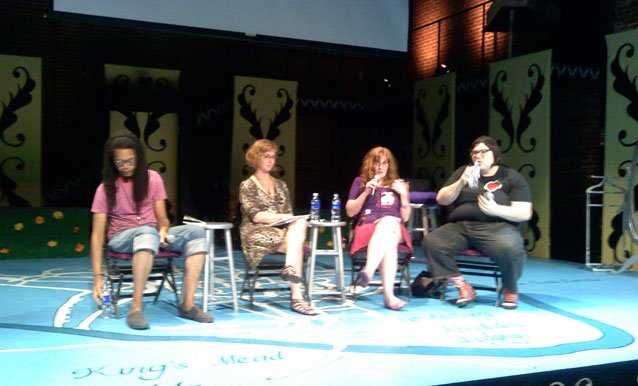
Sunday's inclusivity panel. Left to right: Akira Thompson, Megan Gaiser (Her Interactive), Celia Pearce (Festival Coordinator), anna anthropy.
This isn't to say that Love is some evil man-hating fun-ruiner... well, she might be, but three nights of companionable Italian dinners say otherwise. Indeed, you'd be hard pressed to find someone at IndieCade who means you or anyone else ill, even if their work is the aggressively confrontational sort. And as I mentioned, not every game at IndieCade is. Some are just different. Others are nearly indistinguishable from their fully-funded brethren but for the charm and consistency of vision which often separates them from the game-design-by-committee approach of major studios. Some are simply proofs of concept, like EIS's Prom Week, whose 5,000 AI functions were hailed throughout the event as a small but significant step forward in the field of artificial intelligence modeling. The point is to bring yourself.
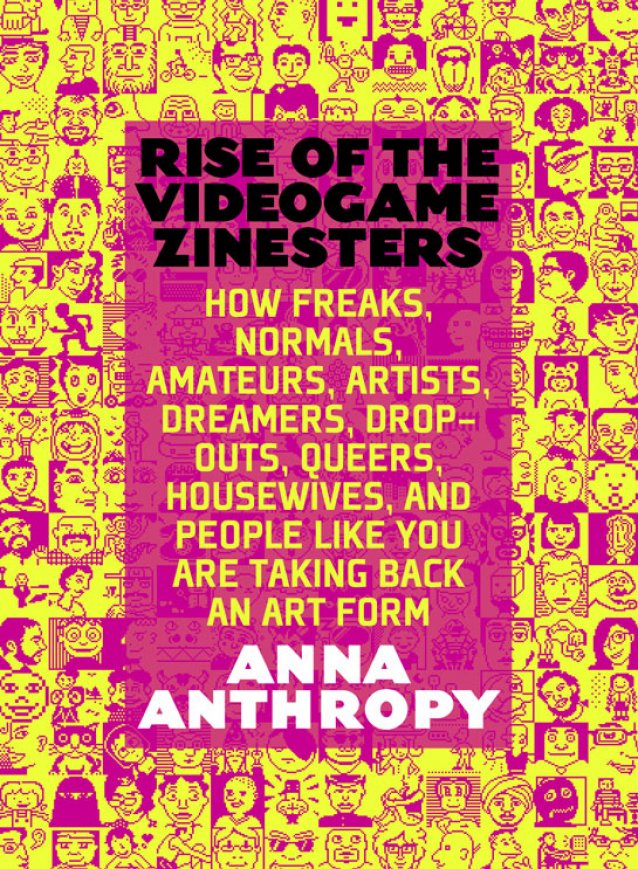 That is the core message of anna anthropy's talk: everyone should make games. Queer games, art games, feminist games, political games. Come one, come all. It's also the subject of her book, Rise of the Videogame Zinesters, in which she advocates for picking up whatever skills and tools you have available to you and just making stuff, quality be damned. In many ways anthropy's statements echo the rise of amateur and outsider filmmaking, the democratization and lowered technology and production costs of movie-making tools together with the ubiquity of sharing platforms like Youtube.
That is the core message of anna anthropy's talk: everyone should make games. Queer games, art games, feminist games, political games. Come one, come all. It's also the subject of her book, Rise of the Videogame Zinesters, in which she advocates for picking up whatever skills and tools you have available to you and just making stuff, quality be damned. In many ways anthropy's statements echo the rise of amateur and outsider filmmaking, the democratization and lowered technology and production costs of movie-making tools together with the ubiquity of sharing platforms like Youtube.
We need a Youtube for games, says anthropy's book. The point is to increase the number voices, period. Nothing is lost by diversifying games development. Everything you liked before will still be there. There will just be more that you hadn't thought about or considered before; more ways for those traditionally silenced to make their voices heard.
This year's Grand Jury Prize went to molleindustria's Unmanned, a split-screen experimental game which places players in the role of a military drone pilot. The project is unabashedly political, thoroughly intended by developer Paolo Pedercini and writer Jim Munroe to spark a conversation among players. Many developers have criticized this year's awards as being nepotistic, short-sighted, even reinforcing the same normative values many indie developers come here to escape... but it's hard to look at Unmanned and not see the kind of sterling example of incisive, critical work such a conference should be promoting. No, it isn't that Unmanned won the Grand Jury Prize; it's that a lot of other equally political, equally subversive, equally valuable work seemed to get snubbed, and that's a bit of a problem. It was usually one of the only things that got people at IndieCade acting less than nice.
(Well, that and whenever someone got into an argument with or about Jonathan Blow. But I'll leave that to others to write up.)
If you ask me, awards and rankings seem antithetical to the spirit of the rest of IndieCade. Speaking as a critic and, more applicably, as a juror who evaluated many of the games submitted this year, every game exhibited at IndieCade is a worthy piece of work which fully merits your attention, no matter what you're into or what your background is. Each and every one of these games on display this year is a teachable moment; each of the developers on hand to talk about them offer insights you are never going to get from a thousand interviews with Cliffy B. Even the ones I don't personally see the appeal to, like Hotline Miami, I can recognize how such a game captures the critical and journalistic imagination. I want to discuss that, actively, over dinner and sparkling strawberry drinks. All of these games are winners by dint of being official selections; creating awards only adds a layer of official hierarchy, and I'm not convinced there needs to be one at all.
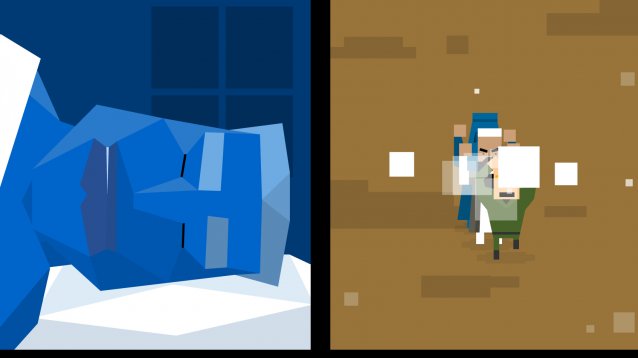
"This game won the Grand Jury Prize at that festival I was at last week," I say to a coworker as I write this article, sending her the link to Unmanned's website, where the game is playable in-browser.
A few minutes go by in silence. I wouldn't be at all surprised if she just ignored the link, not being much of a gamer. Then she says:
"What the shit is this?"
"Erm," I say.
I had had dinner with the game's writer just a few days ago, admiring his calm, steady patience in all of his responses. I definitely did not want to yell at my friend for not getting it, but how do I defend it? Obviously, awards don't mean much to those outside this very small community in which you, dear reader, and I find ourselves.
I settle for explaining the premise of the game. "It's a day in the life of a remote drone pilot," I say.
"I only got as far as being chased by a bunch of ladies in burkas."
"That's his nightmare, yeah." Well, one version of it. In my recent play, he was chased, surrounded and beaten by angry men. "I dunno, I found it really profound but I'll agree the first sequence doesn't work well without context."
I find the first sequence works great, actually, but it's also possible I just knew more going in. Unmanned sans context is a rough ride.
My coworker is silent for a couple more minutes and goes, "AH, okay. It takes a while to get to the good part."
Good part? I wonder. It's all good, I want to argue. Instead I just grunt, "Yeah." Maybe I should show her Dyad. I think she'd 'get' Dyad, though probably not the vicious rollercoaster of its difficulty curve(s). Maybe this is the problem, the same that has angry commenters in various peanut galleries accusing anna anthropy of hating men and dismissing all indie games as navel-gazers. Gamers accustomed to mainstream games are used to a different vocabulary than non-gamers and neither speaks the same language as the critic or indie dev.
I can't imagine my coworker saying "what the shit is this?" to the developers' faces. That is the problem, really, as long as games remain for you simply digital artifacts and the brains behind them just abstract presences. It's much different to stand beside a display table exhibiting someone's game, when the someone is right there, smiling amiably and discussing his or her influences. No, I'm not saying we're more polite in person, I'm saying that putting distance between yourself and the game's designer depersonalizes it for you. I think we all want to be nice, and frankly are nice, in most day to day situations. IndieCade isn't about ideology, storming the castle, usurping anyone's king; it's about everyday people, and wishing to bring that everydayness, that lived experience, into the games we make and play.
(And, yes, there might be a little revolutionary spirit in there too. But even the revolution will be terribly polite, if IndieCade is anything to go by.)
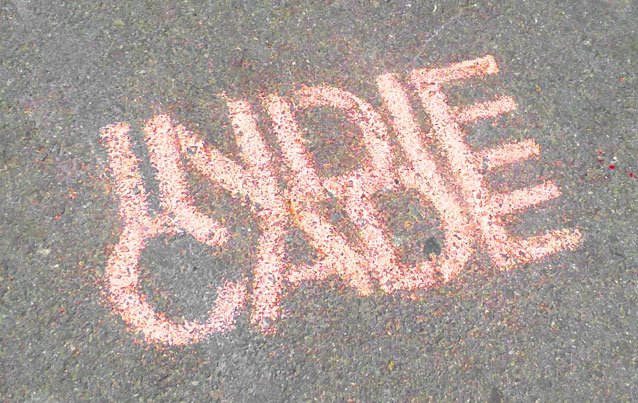
Some of the most exciting news to come out of this year's closing ceremonies was the announcement that IndieCade would be expanding into a second annual festival with IndieCade East. While part of me is quite protective of IndieCade's current quasi-Burning Man, quasi-hippy university atmosphere, I do welcome the opportunity for more developers and more games for everyone-- and more visitors as well. If talks like anna anthropy's can convince just one more person to pick up Game Maker or learn to code and just create, IndieCade has done its job. And if it can impress one more person of indie developers' terrible niceness, that's not a half-bad start either.
You can find out more about IndieCade, including their full list of exhibited games from this year's festival, from their official website.
Photo credit for David Kanaga/Richard Lemarchand picture: jeriaska.
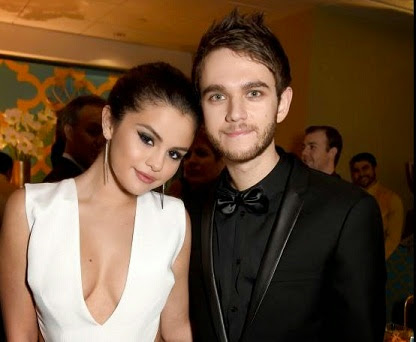
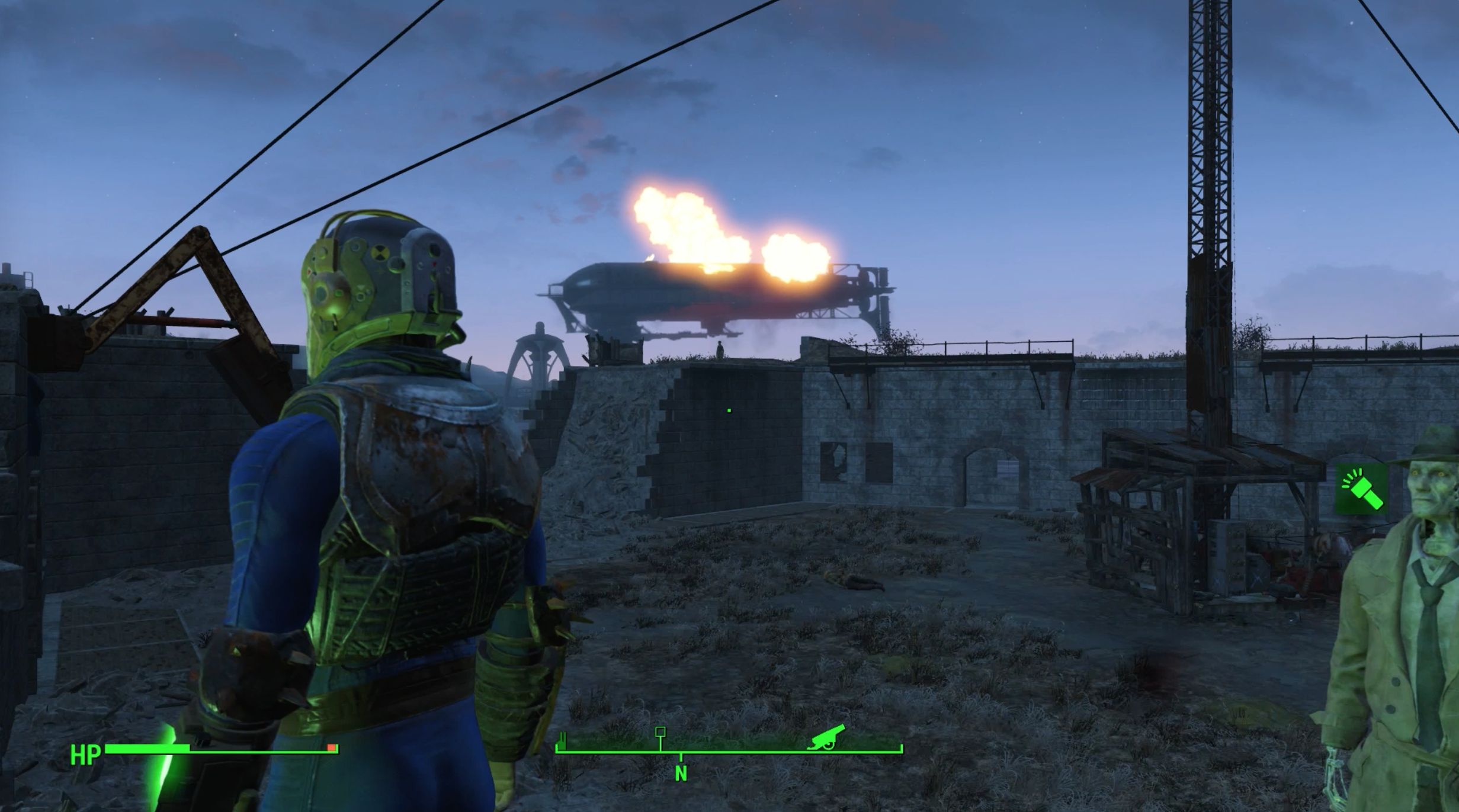


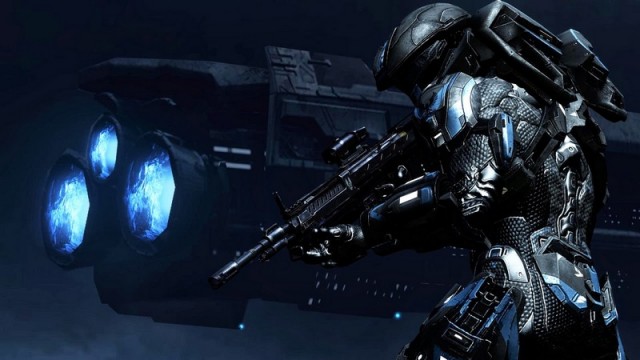 Mission 10 - Enemy Lines: Halo 5 Guardians Guide
Mission 10 - Enemy Lines: Halo 5 Guardians Guide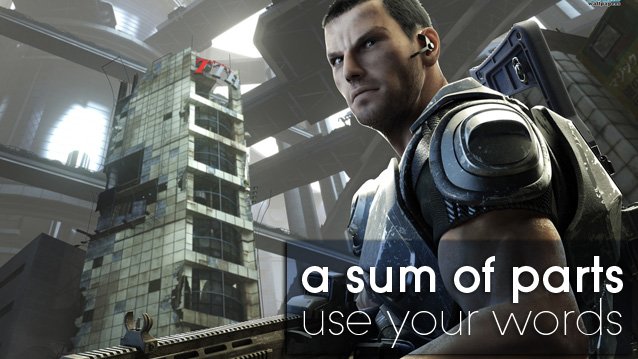 A Sum of Parts: Use Your Words
A Sum of Parts: Use Your Words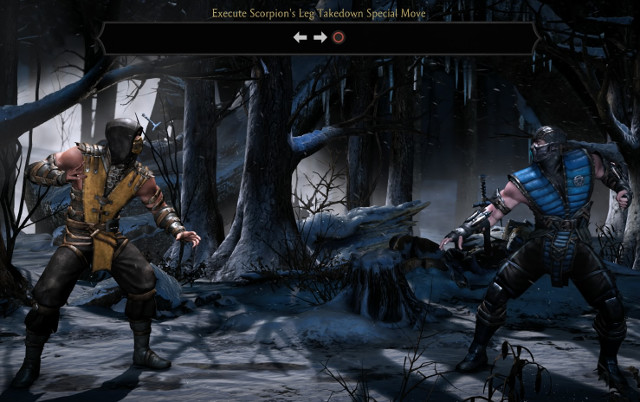 Mortal Kombat X is Here! Should You Buy it?
Mortal Kombat X is Here! Should You Buy it?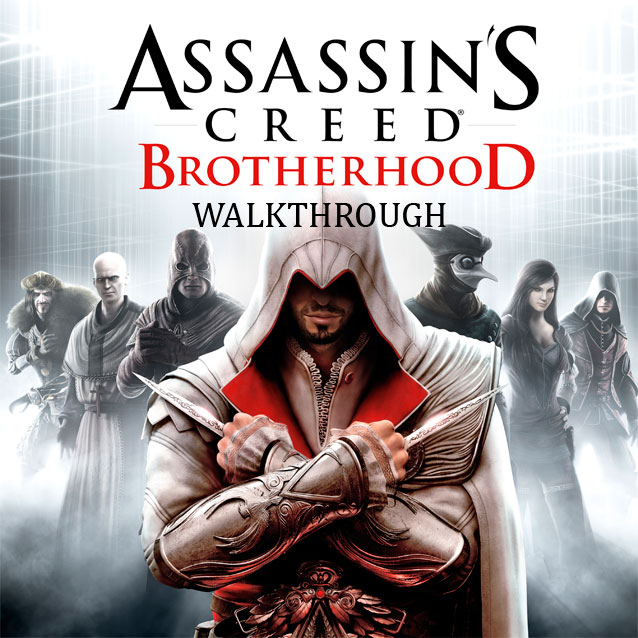 Assassins Creed Brotherhood Walkthrough Video Guide in HD
Assassins Creed Brotherhood Walkthrough Video Guide in HD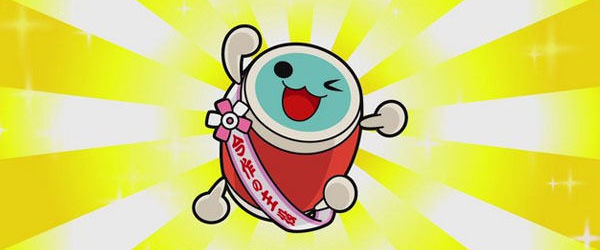 Song List for Taiko Drum Master: Atsumete Tomodachi Daisakusen
Song List for Taiko Drum Master: Atsumete Tomodachi Daisakusen